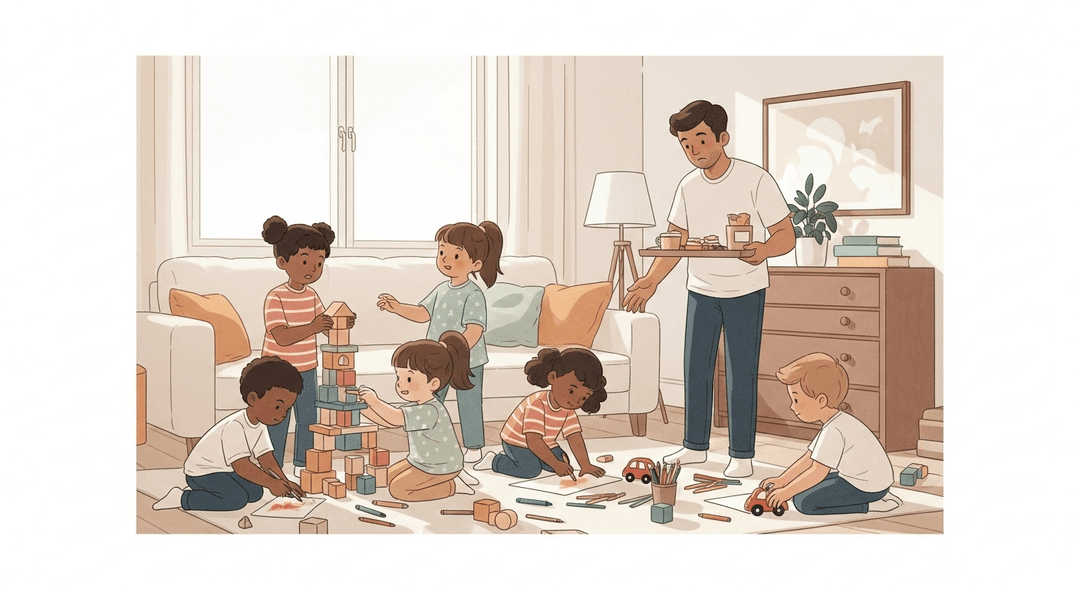Support Their Friendships
Ah yes, the ancient art of playdate diplomacy: where you, the parent, become a snack ref, emotional support animal, and part-time hostage negotiator. If you’ve ever wondered how to help your kid make friends without accidentally signing yourself up as the neighborhood’s unofficial party planner, this one’s for you. Spoiler: you might want to invest in earplugs and develop a tolerance for sticky floors.
Kids who have strong, healthy friendships get a big boost in social skills, empathy, and self-esteem. Their brains light up with all sorts of happy chemicals (dopamine! oxytocin!) when they feel connected and accepted by their peers. For parents, watching your kid thrive socially can lower your stress and make you feel a little less like you’re raising a hermit crab.
How to do it
Start by inviting one child over for a short playdate—aim for about 45 minutes, rather than a lengthy event like a sleepover.
Keep snacks simple and make sure there’s plenty available. Prepare a couple of easy, low-stakes activities in advance, but let the kids take the lead. If they want to play “couch is lava” for the entire time, let it happen.
Check in on them occasionally, but try not to step in and referee every disagreement. Only intervene if things escalate, such as if someone’s hair is being pulled.
After the playdate, talk with your child about how it went and whether they’d like to do it again. Repeat the process as your child feels comfortable.
Key Tips:
- Start small with just one guest and a short time frame.
- Offer simple, plentiful snacks.
- Have a couple of easy activities ready, but let the kids choose what to do.
- Supervise from a distance and only step in when truly necessary.
- Debrief with your child afterward to gauge their feelings and interest in future playdates.
